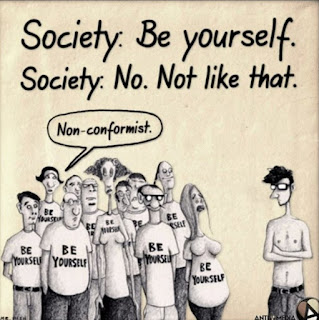The Real Injustice
While 47% of white murder cases are solved, less than 22% of African American cases are solved, (NPR) leaving many African American families with no justice for the crime that was committed against someone dear to them. Of course, nothing can ever completely solve the injustice of murder but by knowing who did it, helps provide closure for the family. Not only are most African American cases left unsolved, but when they are solved only 47% of cases result in an arrest being made (Washington Post). When Coates’s son was upset about Michael Brown’s murderer being let free, Coates refused to comfort him because of deeper injustices. Another case that didn’t result in any arrests happened in Atlanta in the late 1970’s and early 1980’s. A serial killer murdered a dozen children, mostly African American boys whose bodies were later found in rivers, under bridges, and behind dumpsters. In 1982, Wayne Williams was sentenced to two lifetimes in prison for killing two adults (New York Times). Because of this, police suspected he killed the children. In the end, no one was ever put on trial for the killing of the children which left many families without closure. Coates tells his son “you have not yet grappled with your own myths and narratives and discovered the plunder everywhere around us” (21). In the book, Coates’s son believes that the injustice was that Michael Brown’s murderer was not charged with anything but Coates thinks that there are deeper injustices than that. The deeper injustices Coates refers to when talking to his son are that black bodies are never safe and that America was built upon the work of enslaved black bodies, which is ignored by Dreamers.
Black bodies not being safe is a result of police not protecting them and instead putting them in harm's way. The parents of Atlanta feared that their children will be killed if they go on the streets of Atlanta, which means the people feel that the police are not fulfilling their job to protect the people. Not only are the police not protecting, but when it comes to black children, the murders go unsolved and leave parents with injustice. Instead of investigating the murders, the police simply convicted Williams out of convenience. Coates explains that black people are left with the responsibility of protecting themselves even though they have not done anything wrong. This is the same situation for the kids in Atlanta because even though they have not done anything wrong, they are fearing for their lives because the police are not protecting them and investigating for them. Coates tells his son “but you are a black boy, and you must be responsible for your body in a way that other boys cannot know” (71). The consolation that is given to these families is almost invalidated because this problem of the police not protecting black bodies will never be solved and everything will not be okay.
Another injustice that Coates refers to is the fact that America’s thriving economy was founded upon the abuse of black bodies. “Whole generations followed by more generations who knew nothing but chains...Enslavement was not destined to end” (70). The Dreamers turn a blind eye to America’s cruel past and continue to keep African American people in the lowest class of society. They argue that so much has changed and improved but really, it hasn’t. Black people are treated as second class citizens and not put up to the same care and protection as white people. In the Atlanta case, the police just convicted Williams out of convenience. They didn’t really care if the families got justice or closure.
Revised:
Revised:
Economic considerations are very important to police due to how people on the lower side of the economic spectrum have less power in society. A policeman would be more inclined to help a wealthy person than a poor person because unlike a poor person, a wealthy person can ruin the reputation of police and potentially have their job away. This power inequality and other injustices are deeply rooted in American society. The injustices Coates mentions show that there still are remnants of enslavement in our modern day world despite slavery being abolished in 1865. These vestiges of enslavement are seen in how black people are treated as second class citizens and not as a first priority to police. This treatment gives black people much less power to make change and affect the problems of the United States because it keeps them in a status that they can never get rid of. A status that keeps them powerless and unimportant to the United States government.

The Atlanta case is heartbreaking, and illustrates that the police's mistreatment of African American people has persisted for decades. Why might police be more motivated to solve the murders of white people and less motivated to solve the murders of African Americans?
ReplyDelete